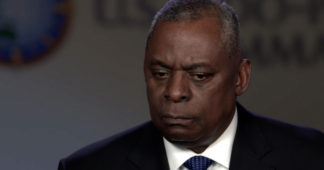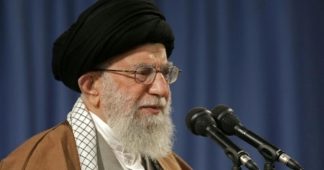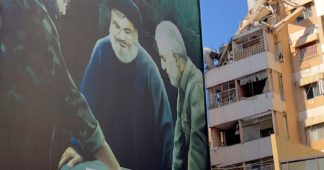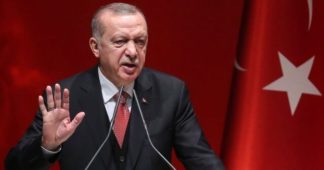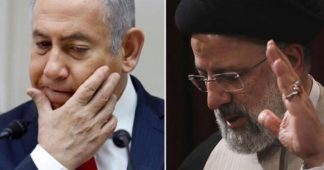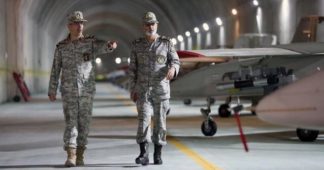Aug. 4. 2024
Israel’s recent assassinations have raised the possibility of regional conflict. How will Iran respond? Are there any forces to stop Israel’s aggression? Is regional cooperation against Israel possible?
Turkish newspaper Aydınlık made interviews with 5 experts from Iran and Türkiye on these questions. Following experts delivered comments: Dr. Hazar Vural Jane from Istanbul Aydın University’s Department of Political Science and International Relations, Dr. Hamid Rushencheshm from Tehran Islamic Azad University’s Department of Political Science, Iranian journalist Ferşid Begeryan, Ziya Türkyılmaz, General Director of Rast News Agency and Prof. Dr. Mehmet Yuva, the President of Turkish-Syrian Friendship Movement.
We provide the interviews translated from Turkish into English.
“Strategic patience” of Iran
Dr. Hazar Vural Jane said that Iran would respond to Israel with “strategic patience”:
“Iran’s foreign policy is not emotional or reactive. It is characterized by ‘strategic patience’, waiting for the right moment to respond appropriately and rationally. Therefore, I do not expect an immediate response. It is possible that there will be a response within the framework of Iranian-affiliated militia groups and the resistance axis. Iran would not act recklessly or in disregard of international law because doing so would lead to severe consequences in its relations with Western states.”
In coordination with Türkiye
Dr. Hamid Ruşençeşm from Tehran Islamic Azad University’s Department of Political Science said that Iran’s activities against Israel in the region will increase following the assassination of Ismail Haniyeh. He noted:
“Some of these activities would be in coordination with countries in the region like Türkiye. Iran’s relationship with Türkiye is now at a high level.
Following Operation Al-Aqsa Storm, Israel’s vulnerability has significantly increased. So the cooperation between Iran and Türkiye could complete Israel’s blockade. Additionally, solving security and terrorism issues along the Türkiye-Iran border is crucial for reducing the influence of Israel and the US in the region.”
Dr. Ruşençeşm also indicated that Iran’s response to the assassination of Haniyeh would involve “Iran’s direct participation”:
“It is clear that Iran will respond directly to Israel’s aggression. After conducting the Operation True Premise against Israel, Iran has started to monitor and respond to any direct threats through specific military operations. Given the current conditions in the region, including operations in Beirut, Bandar al-Hudaydah and Tehran, a decisive response against Ismail Haniyeh will likely involve a comprehensive special operation combined with resistance forces in Yemen and Iraq. This response would involve the aspects of cyberattacks, missiles, drones, rockets, ground operations and psychological warfare.”
Dr. Ruşençeşm mentioned that Iran adjusts its strategies according to regional conditions. He said, “Israel is now in a difficult position, and the resistance structure is ready to strike significant blows to the Zionist regime. Consequently, there appears to be a strategic shift in the regional security balance, where the role of Iran and Türkiye is increasing while Israel is retreating.”
Immediate revenge?
Iranian journalist Fershid Bageryan emphasized that Iran would not respond immediately to Israel’s attack. Bageryan stated:
“Iran is a state governed by rationality. Iran will not hastily launch missiles at Israel. Initially, Iran will pursue legal avenues, although it knows that such efforts would not produce any effective consequences. Some groups in Iran demand immediate revenge, which would likely be counterproductive and provocative. We must act calmly, as our enemy is intelligent with significant technology, financial resources and international influence. Iran is acting prudently, though it has faced criticism domestically because of this approach.”
Bageryan claimed that the planner of the attack might be England. He said, “Information might have been obtained from traitors inside. There seems to be a collective organization behind this. In my opinion, England might be behind it since it lost Israel to the US.”
Iran and Türkiye in Africa
Bageryan also commented on Türkiye-Iran relations. He said that the areas of competition between Iran and Türkiye are turning into areas of collaboration: “Iran and Türkiye are expanding their influence in Sudan, Libya, Djibouti and Tanzania. There are attempts to create conflict between Iran and Türkiye, but since both are governed rationally, they do not engage in direct conflict. Their new policies are focused on Africa and maritime areas. Both countries are quietly expanding their maritime jurisdictions without interfering with each other’s areas.”
Bageryan also said that Türkiye, Iran, Russia and Syria could create a maritime power. He emphasized the importance of Syria’s position in the Eastern Mediterranean and the significance of the power that Iran and Türkiye could form.
He added that Russia might open its bases in Syria for use by Iran and Türkiye, as Russia wants to concentrate more on Ukraine.
“Only three countries left: Türkiye, Iran and Egypt”
Ziya Türkyılmaz, General Director of Rast News Agency, stated that Iran will respond to Israel based on its own conditions and capabilities. Türkyılmaz said the following:
“Iran will not give a very strong response. Iran does not make decisions based on internal or external pressures and does not fall for provocations. The West is provoking Iran, too. If Iran attacks, it will not only be at war with Israel but with the Western world too, which would be much bigger than the current one.
The only way to resolve the problems in the region is to build a strong cooperation. Arab countries are almost completely passive. They can’t make any decisions, let alone implement them. Some countries, like Lebanon and Syria, are busy with their own problems. There are only three countries left: Türkiye, Iran and Egypt. One should not expect much from outside these countries. The two countries that can end the regional conflicts are Iran and Türkiye. However, as long as Türkiye is a NATO member, it will remain difficult for it to take such effective steps, Erdoğan may make some bold statements though. The established system maintains itself in Türkiye. The moves like I mentioned don’t seem possible, even if desired. Moreover, Türkiye needs to normalize relations with Syria. Past mistakes need to be rectified. The cooperation of the four countries, Türkiye-Iraq-Iran-Syria, would put Israel in its place.”
A unifying plan against of Israel’s divisive plans
Prof. Dr. Mehmet Yuva also thinks that cooperation between Türkiye and Syria could be very effective to stop Israel’s aggression, or at least weaken its position:
“After Israel’s attacks on Lebanon, the counties in the region will consider working together more closely, including military activities. And in my opinion, if there comes a concrete counterattack on Israel, the decision of that attack will be made together. So, the formula is: Political solution leads to military solution. Because when Türkiye-Syria normalization is achieved, there will be no need to engage in any direct military conflict with Israel and the US. This would be a great gain for Lebanon, Palestine, Syria and Türkiye. Let’s not forget that Israel’s main target is not only Gaza and Palestine, but to divide Syria and to build a puppet state in northern Syria. When we respond to its projects with such solid projects, what do we do to Israel’s strategic goals? We need to respond with the projects of equal impact to those of Israel’s.”
We remind our readers that publication of articles on our site does not mean that we agree with what is written. Our policy is to publish anything which we consider of interest, so as to assist our readers in forming their opinions. Sometimes we even publish articles with which we totally disagree, since we believe it is important for our readers to be informed on as wide a spectrum of views as possible.
